How To Pay Less Taxes 8 Tips To Save More Money
Regarding taxes, everyone wants to pay as little as possible. Unfortunately, taxes are inevitable, but with some planning and strategies, you can reduce your tax bill and keep more of your hard-earned money.
This article will discuss several tips that can help you reduce your tax bill—exploring the advantage of tax deductions, credits to contributing to a retirement account and keeping accurate records of your expenses, choosing the correct filing status, and reviewing your deductions and credits annually. Look for free tax preparation options and seek help from a professional.
Following these tips ensures you are paying the lowest taxes possible while minimizing your tax liability.
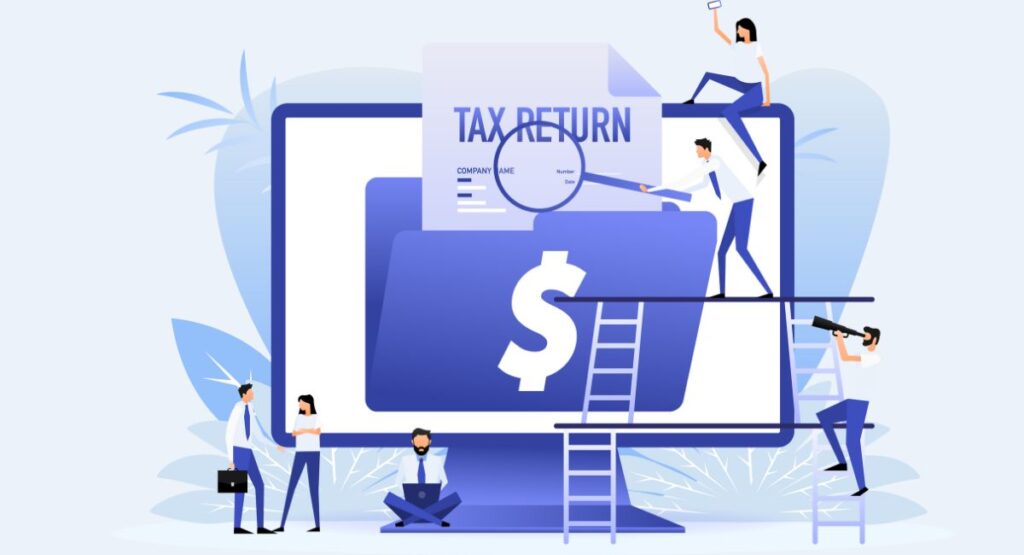
Take advantage of tax deductions: How To Pay Less In Taxes
Tax deductions lower your taxable income by the amount of the deduction. Standard deductions include those for charitable donations, state and local taxes, and mortgage interest.
When you take advantage of tax deductions, you can lower the amount of your income subject to taxation, which can result in a lower tax bill or a larger refund.
Charitable Donations: made to qualified charitable organizations can be a tax deduction. Remember that the donation has to be to a qualified organization. You must have a receipt or other documentation to prove the donation.
State and local taxes: You can deduct state and local income, sales, and property taxes on your federal income tax return. However, due to the Tax Cuts and Jobs Act of 2017, there is a limitation on the state and local tax (SALT) deductions. In 2021, the SALT deductions capped at $10,000, which means if you paid more than that, you could only deduct $10,000.
Mortgage Interest: If you own a home and have a mortgage, you can deduct the interest you pay. The mortgage interest deduction is limited to mortgages on your primary residence, and the property must secure the mortgage.
In addition, many other tax deductions are available depending on your situation, such as Student Loan Interest, Medical Expenses, and many others. It’s essential to consult with a tax professional or financial advisor, as not all tax deductions apply to all individuals.

Contribute to a retirement account:
Contributions to a traditional IRA or 401(k) can lower your taxable income and help you save for retirement at the same time.
One way to lower your taxable income is by contributing to a retirement account. Retirement accounts, such as traditional IRAs and 401(k) plans, can help you save for retirement while also providing tax benefits.
You only have to pay taxes on the money you contribute to the account once you withdraw it in retirement. Additionally, contributions to a traditional IRA may be tax-deductible, depending on your income level and whether or not an employer-sponsored retirement plan covers you or your spouse.
A 401(k) plan is a retirement savings plan offered by many employers. Like a traditional IRA, contributions to a 401(k) plan are taxed once you withdraw the money in retirement. In addition, many employers will match a portion of the contributions made by their employees, further increasing the amount saved.
Both types of accounts, traditional IRA and 401(k), have annual contribution limits, which are subject to change each year. In 2023, the contribution limit for a 401(k) plan is $22,500, and $6,500 for a traditional IRA. Additionally, if you are 50 years or older, you can make catch-up contributions of $1,000 for a traditional IRA and $7,500 for 401(k)
By contributing to a retirement account, you can lower your taxable income and accumulate savings for your future at the same time. Please note that the rules for contributions, taxation, and withdrawal for retirement accounts can be complex, and it’s advisable to consult a financial advisor or tax professional to understand how they apply to your situation.
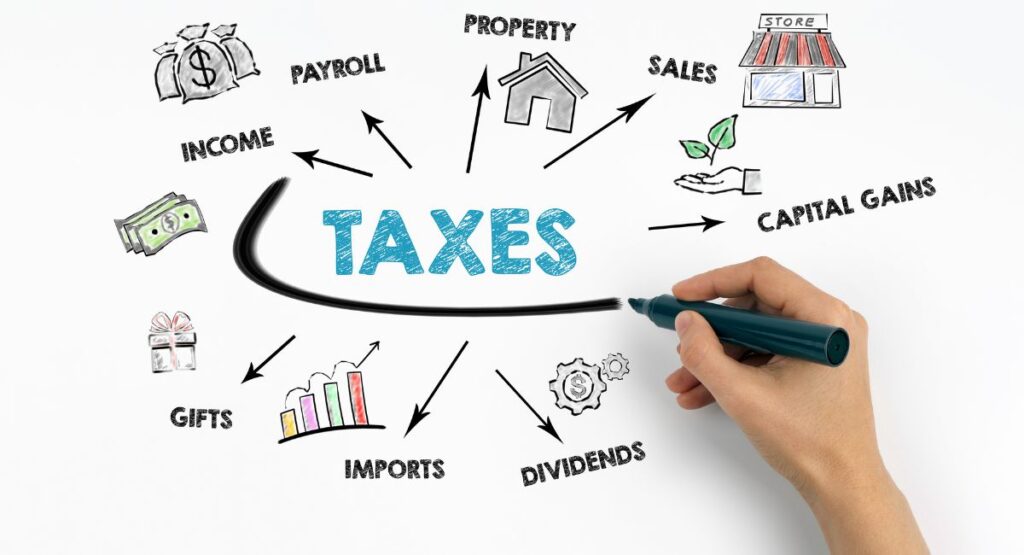
Claim tax credits:
Tax credits are dollar-for-dollar reductions of your tax bill. The Earned Income Tax Credit and Child Tax Credit are examples of credits that can significantly lower your tax bill.
Tax credits differ from tax deductions because they provide a dollar-for-dollar reduction of your tax bill. If you qualify for a $1,000 tax credit, it will reduce your tax bill by $1,000.
One example of a tax credit is the Earned Income Tax Credit (EITC). They are to help low- to moderate-income taxpayers. To qualify for the EITC, you must have earned income from employment or self-employment and meet certain income and filing requirements. The credit amount varies based on your income, filing status, and the number of children you have.
Another example is the Child Tax Credit, which is available to taxpayers with dependent children under 17. This credit can reduce your tax bill by up to $2,000 per child, depending on your income. The Child Tax Credit can be partially refundable, which means you may still receive a portion of the credit as a refund even if you have no tax liability.
Other tax credits are available, such as the Child and Dependent Care Credit, which helps offset childcare costs while you work. The American Opportunity Tax Credit, which helps with the cost of college education, and the Lifetime Learning Credit, to help with the cost of education after high school, among others.
It’s important to note that the income limits and eligibility criteria for tax credits can change year by year. It’s advisable to consult a tax professional. Use tax preparation software to determine your eligible credits and how much they will reduce your tax bill.
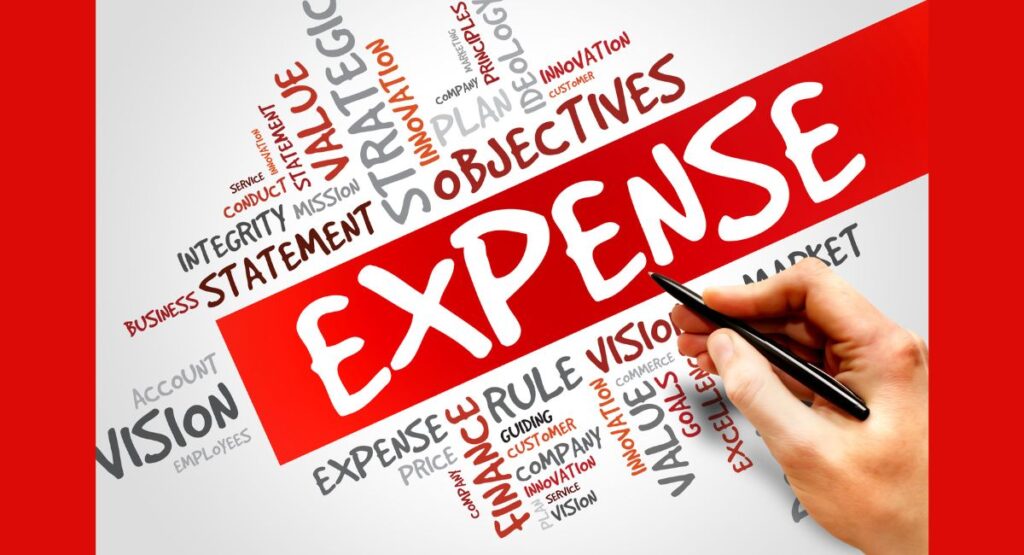
Keep track of your expenses: Save More Money
Keeping accurate records of your expenses throughout the year can help you take advantage of deductions and credits that you might otherwise miss. By keeping track of your expenses, you can ensure that you are claiming all the deductions and credits to which you are entitled.
There are several expenses that you may be able to deduct from your taxes, such as:
- Business expenses: If you’re self-employed, you can deduct a wide range of business expenses, such as office expenses, supplies, and travel.
- Medical expenses: You may be able to deduct them if they exceed a certain percentage of your income.
- State and local taxes: You can deduct state and local income, sales, and property taxes.
- Mortgage interest: If you own a home and have a mortgage, you may be able to deduct the interest you pay on your mortgage
- Charitable donations: You can deduct contributions made to qualified charitable organizations.
It’s critical to keep all the receipts, invoices, and other records that document these expenses so that you can prove them to the IRS if necessary.
Additionally, by keeping accurate records throughout the year, you can also plan and adjust your expenses to optimize your deductions and credits, like bunching certain expenses in a specific year to exceed the threshold for certain deductions or to maximize certain credits.
As keeping accurate records can be tedious, it’s advisable to use good accounting software or consult a tax professional to help you with it. This help ensures that you take advantage of all the deductions and credits you qualify for and that you are paying the lowest taxes possible.

Consider your filing status: How To Pay Less Taxes
Your filing status can affect your tax bill, so choose the one that provides the most tax savings. For example, if you are married, it might be more beneficial for you and your spouse to file jointly.
Your filing status can significantly impact your tax bill, so choosing the one that provides the most tax savings for you is vital.
There are five filing statuses: Single, Married Filing Jointly, Married Filing Separately, Head of Household, and Qualifying Widow(er) with Dependent Child.
Single: You would use this status if unmarried, divorced, or legally separated as of December 31st of the tax year.
Married Filing Jointly: Married couples can file their taxes jointly or separately. In most cases, it’s more beneficial for married couples to file jointly because the standard deduction and tax brackets are higher for joint filers than for single or separate filers. Additionally, tax credits and deductions are only available to those filing jointly.
Married Filing Separately: Some couples may choose to file separately, usually if one spouse has a significant amount of income, deductions, or credits, and it would be more beneficial to do so. However, you’ll usually pay more taxes if you file separately.
Head of Household: This status is for individuals who are unmarried but pay more than half the cost of maintaining a home for themselves and a qualifying person, like a child. This status typically has a higher standard deduction and a more favorable tax bracket than for single filers.
Qualifying Widow(er) with Dependent Child: This status is for widows or widowers who have a qualifying child and meet specific criteria. This status has the same benefits as the married filing jointly status but for only two years after the spouse’s death.
It’s important to note that tax laws and regulations can change yearly. Consult with a tax professional or use tax preparation software to determine which filing status will provide the most tax savings for you. Additionally, your financial situation, dependents, and other factors can influence your decision, so you should review your options carefully before choosing a filing status.
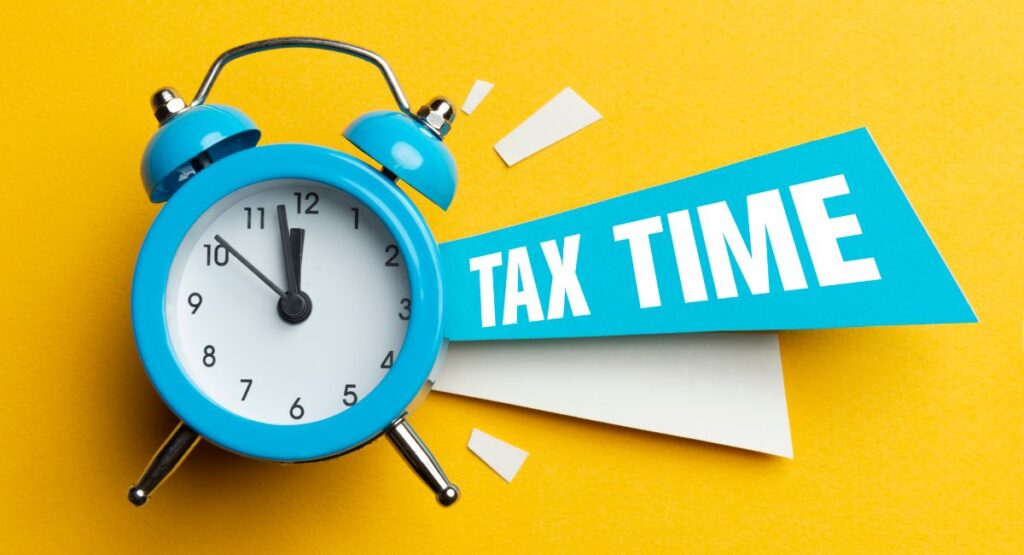
Review your deductions & credits annually: How To Pay Less Taxes
Tax laws change annually, so ensure you take advantage of all the deductions and credits that apply to you.
Tax laws and regulations can change yearly, so you must review your deductions and credits annually to ensure you take advantage of all the deductions and credits that apply to you. This help ensures you are paying the lowest taxes possible.
Here are a few things to keep in mind when reviewing your deductions and credits:
- Check for changes to the tax laws: Each year, Congress can make changes to the tax code that may affect your deductions and credits. For example, the tax reform in 2017, the Tax Cuts and Jobs Act made some changes to itemized deductions and increased the standard deduction and other changes that may impact your tax situation.
- Review your income: Your income level can affect the deductions and credits you qualify for. For example, certain deductions and credits have income limits, so if your income changes, you may no longer qualify for those deductions and credits.
- Make sure you are claiming all the deductions and credits to which you are entitled: There are many deductions and credits available, and it’s easy to overlook some of them. By reviewing your deductions and credits annually, you can make sure you are taking advantage of all tax savings.
- Keep accurate records: Keep a correct log of your expenses throughout the year and ensure you have the documentation to support your deductions and credits.
It’s important to note that tax laws and regulations can change yearly. Consult with a tax professional or use tax preparation software to determine which deductions and credits you are eligible for. Additionally, your financial situation, dependents, and other factors can influence your decision, so you should review your options carefully before choosing deductions and credits.
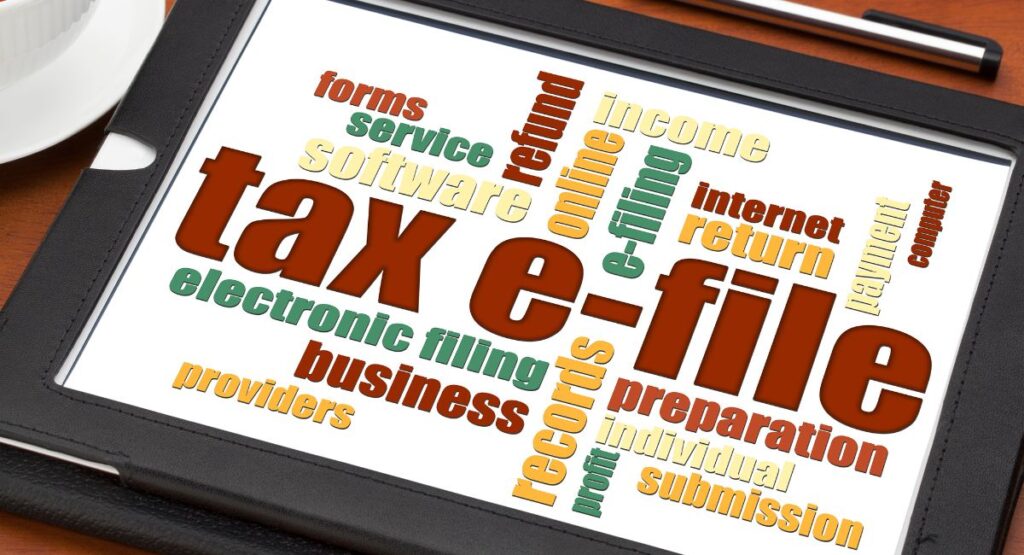
Look for free tax preparation options: Save More Money
Consider using free tax preparation software or services to help ensure that you are getting the most out of your tax return.
Filing taxes can be complicated and time-consuming, and many people use tax preparation software or services to help them complete their tax returns. However, these services can be expensive. One way to save money on taxes is to look for free tax preparation options.
Free tax preparation software can help you complete your tax return, including TurboTax and H&R Block. Individuals with simple tax situations can use these programs to guide them through the process, help them claim all the deductions and credits they’re eligible for, and electronically file their returns to the IRS.
Additionally, the IRS partners with Volunteer Income Tax Assistance (VITA) program. The Tax Counseling for the Elderly (TCE) program to offer free tax preparation services for specific individuals. These programs provide tax help to people who make $57,000 or less and for elderly taxpayers, people with disabilities, and non-English speaking taxpayers who need assistance preparing their tax returns.
It’s important to remember that these options may have specific limitations. For example, the free software version may have only some features. If you have a more complex tax situation, like having rental properties, Self-employment income, you may need to upgrade to a paid version. Additionally, availability can depend on your location for the VITA and TCE.
You can save money on your taxes using free tax preparation options and ensure you get the most out of your tax return.

Seek help from a professional: How To Pay Less Taxes
Consult with a tax professional or financial advisor to get the best advice for your tax situation. Seeking help from a professional can be an excellent way to ensure you get the best advice for your tax situation.
Tax laws and regulations can be complex, and it’s easy to make mistakes or overlook deductions and credits to that you are entitled. A tax professional or financial advisor can help you navigate the tax code and ensure you are paying the lowest taxes possible.
A tax professional, such as a certified public accountant (CPA) or an enrolled agent (EA), is an expert in tax laws and regulations and can advise you on how to prepare your tax return best. They can also represent you in front of the IRS if needed. Tax professionals can assist you in understanding the tax laws that apply to your specific situation and help you maximize your deductions and credits and minimize your tax liability, whether you have a simple or complex tax situation.
On the other hand, a financial advisor can help you with all aspects of your finances, including taxes, retirement, and investments. They can help you create a comprehensive financial plan that considers your current situation and tax implications and guide you through reaching your financial goals.
Hiring a professional can be costly, so you may want to consider that before deciding to seek help and compare the cost of hiring a professional with the potential tax savings that they may be able to provide you. Additionally, check the professional’s credentials, experience, and reviews before you decide to work with them.
In summary, seeking help from a tax professional or financial advisor can be a great way to ensure that you get the best advice for your tax situation. They can help you navigate the tax laws and regulations, maximize your deductions and credits and minimize your tax liability.
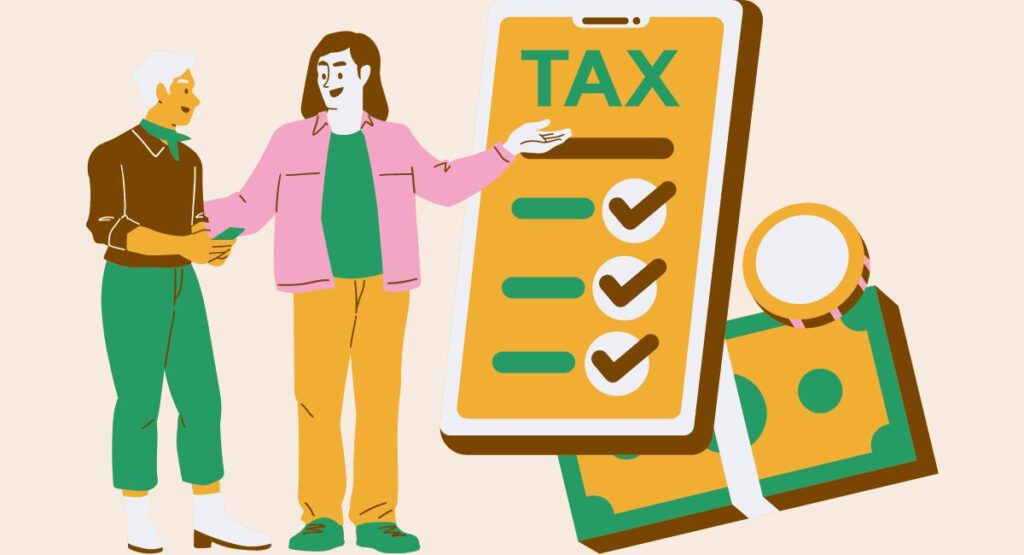
In Conclusion – How to Pay Less Taxes
There are several ways to save money on your taxes, such as taking advantage of tax deductions and credits and contributing to a retirement account, keeping accurate records of your expenses, choosing the correct filing status, and reviewing your deductions and credits annually. Look for free tax preparation options and seek help from a professional.
Following these tips can reduce your tax bill and keep more of your hard-earned money. However, it is crucial to remember that tax laws and regulations are complex and can change yearly. Hence, staying informed and consulting a tax professional or financial advisor is essential to get the best advice for your tax situation.







